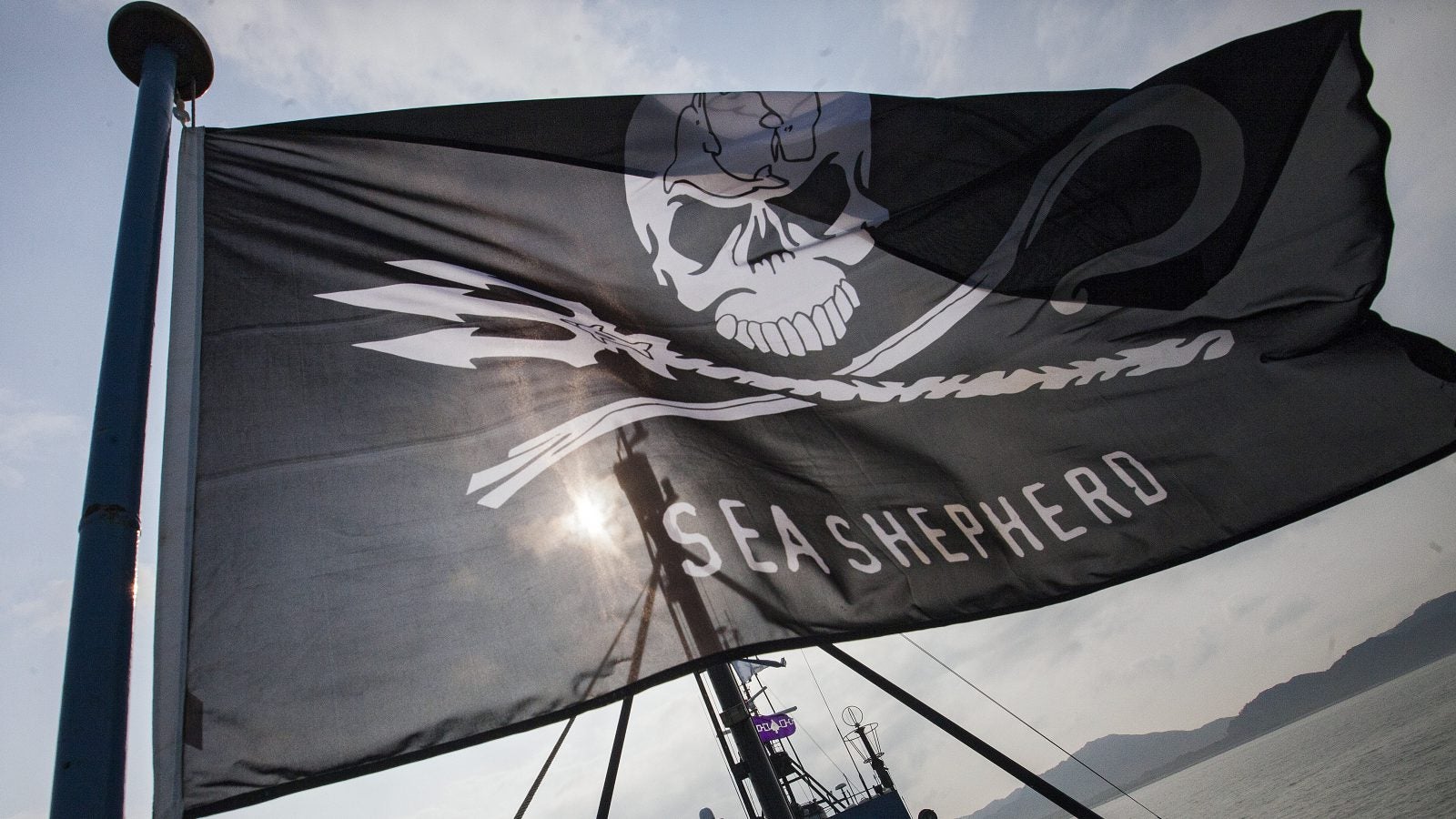Conservationists have finally found a way to beat Japanese whalers: outrun them
One way to put a stop to whalers brandishing harpoons: build a boat that’s quick and agile enough to out maneuver them in the Antarctic seas.


One way to put a stop to whalers brandishing harpoons: build a boat that’s quick and agile enough to out maneuver them in the Antarctic seas.
On Aug. 30, the marine conservationist group Sea Shepherd launched its latest campaign against Japanese whaling in the Antarctic for the upcoming season starting in December 2016. Dubbed “Operation Nemesis” after the Greek goddess of retribution for evil deeds, the campaign will include the first mission for Sea Shepherd’s newest patrol boat, the Ocean Warrior, launched in July 2016.
Sea Shepherd commissioned the boat after receiving the biggest donation in organization history, €8.3 million ($9.3m) from the Dutch Postcode Lottery back in January 2015. It was designed explicitly to rival the speed of Japanese whaling boats.
“This is a vessel with incredible endurance, and it’s a very fuel-efficient vessel, so this is a vessel that can outrun the whalers and therefore can get between the harpoons and these whales,” Captain Peter Hammarstedt, chairman of Sea Shepherd Australia, told ABC.
For over a decade, Sea Shepherd has been following Japanese whalers every hunting season, often literally clashing their boats with the whalers’ in order to save the cetaceans. They estimate they’ve prevented the deaths of over 5,000 whales so far.
In 1982, the International Whaling Commission (IWC), which regulates the whaling industry, issued a moratorium on commercial whaling that came into force for the 1985-86 season. However, it has granted Japan (and some other countries) special permission to continue whaling for scientific research.
But activists and some scientists (pdf) suspect that Japanese whalers are still harpooning the sea mammals for commercial sale while claiming their catches are made in the name of science. In 2010, the Australian government issued a complaint about this scientific bluff to the International Court of Justice sitting in Hague, and the court ordered in March 2014 that Japan suspend its whaling for the 2014-15 season.
Later, in November 2015, the Australian Federal Court found Japanese whalers guilty of illegally catching minke whales inside a whale sanctuary in waters off Antarctica. As a result, Japanese whaling company Kyodo Senpaku—which is responsible for running the Antarctic whaling research program for the government-backed Institute for Cetacean Research —was fined 1 million Australian dollar ($751,000).
Despite the international criticism, Japan took up the hunt again in the 2015-16 season. In total, 333 minke whales—including 230 pregnant females—were killed that season.
With Ocean Warrior, Sea Shepherd’s current fleet has grown to nine boats cruising around the globe protecting creatures of the sea. Recently, Sea Shepherd settled (pdf) a lengthy legal dispute with Japan’s whaling regulatory body pledging to not “physically” disturb the country’s whale hunting.
It’s likely though that the battle will continue on the Southern Ocean surrounding Antarctica. The US court ruling only binds the American and not the Australian branch of the organization—and it’s the Australians who are in the best geographical position to halt Japanese whalers arriving in Antarctic waters this December, when many whales will also begin to show up for their summer (in the southern hemisphere) feeding period.